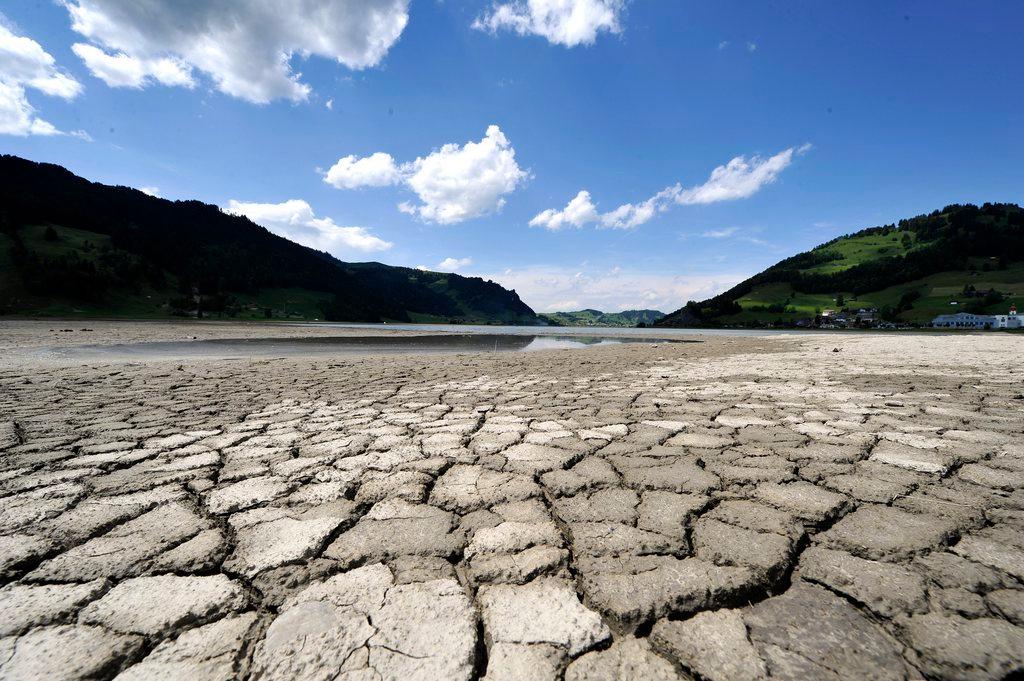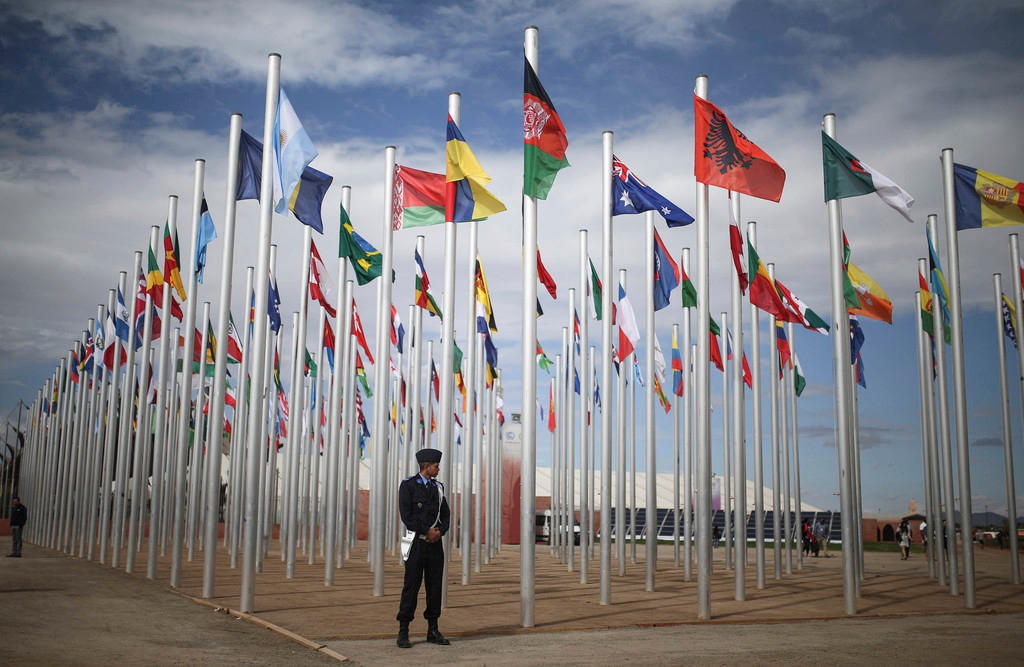Swiss climate change risks outweigh opportunities

That’s the conclusion of an unprecedented nationwide study examining the risks and opportunities for Switzerland in the context of a changing climate, the results of which were released on Tuesday.
The results of the report, presented at a conference in Bern by the study’s authors from the Federal Office for the EnvironmentExternal link, are based on studies conducted by 360 researchers in eight Swiss cantons. They developed a list of major challenges – along with some 30 associated risks – that Switzerland can expect to face between now and 2060.
The environment office experts also identified some opportunities and potential benefits that Switzerland may experience as the climate changes – but that list is much shorter.

More
Swiss government sets out next climate target
Heat, health, and harvests
The study was originally organised to better develop carbon emissions reduction policies in Switzerland. To do this, the researchers targeted the cantons of Aargau, Basel City, Fribourg, Geneva, Graubünden, Ticino and Uri for their analysis.
“We chose the cantons that best represented the different parts of Switzerland. Some represent the plateau, others the alps, urban agglomerations et cetera,” Pamela Köllner, one of the authors of the report from the environment office’s Climate Reporting and Adaptation Section, told swissinfo.ch.
Among the risks identified are high temperatures, which are likely to have a serious impact on human health, as has been seen from the effects of recent heat waves in Switzerland. In addition to health risks – such as sleep disturbances and cardiovascular problems – high temperatures can also negatively impact work productivity and energy consumption for cooling.
In her talk in Bern on Tuesday, Carla Gross, another of the study’s authors, pointed out that the effects of heat on health are particularly significant for an increasingly urbanised and aging population like Switzerland’s.
The bad:
- Health impacts and increased cooling energy use due to high temperatures
- Decreased agricultural harvests, increased forest fire risk, water scarcity and lower hydropower output due to drought
- Personal and property damages due to flooding
- Personal and property damages due to landslides
- Degradation of water, soil and air quality
- Health and ecosystem damage due to the spread of harmful organisms, diseases and exotic species
- “Wild card risks” – risks that are difficult to evaluate
The good:
- Less energy needed for heating
- Increase in summer tourism
- Decrease in damages linked to snow
- Increased yields for some agricultural goods
The flip side of warmer temperatures is one of the possible benefits the researchers identified, because they could decrease energy used for heating, and help boost summer tourism to Switzerland. Warmer weather can also help increase production of some agricultural products. However, as the authors point out, these same crops would then be negatively impacted by increasing drought and dryness – one of the major “priority” risks identified.
Dryness and drought will also negatively impact forest fire risks, as well as hydropower production during the summer months. As for tourism, the downside there is the negative impact on winter thrill-seekers, who will find the snowfall limit receding higher and higher up the mountains as time goes on.
Not everything appears in black and white, however. The modification of natural environments and landscapes, indirect climate effects from other countries, and changing snowfall and storm patterns were all identified by the report as “challenges” whose impacts are still unknown, and could fall into either the positive or negative category.
‘Wild cards’
Finally, the environment office identified “wild card” risks, which “correspond to unexpected events that have significant potential to cause damage” and include “meteorological situations still unprecedented in Switzerland, or critical sequences of natural disasters”.
“These risks are really defined by their unpredictable character and are almost impossible to foresee. But it’s important to take them into consideration to expand our horizons and especially to define more innovative, flexible and robust measures,” Köllner explained.
Swiss strategy needs work
One of the report’s main conclusions was that the Swiss government’s current strategy for climate change adaptationExternal link needs to be refined, as it does not entirely account for the risks and opportunities identified – particularly those whose effects are still uncertain like the wild cards, storm patterns, and climate change impacts abroad.
The results were summarised and evaluated in collaboration with scientific, economic, and policy experts to create not only an inventory of climate change risks and opportunities for Switzerland, but also tools for cantonal policymakers to use in planning their own targeted adaptation strategies.
Köllner adds that the significance of the report lies in its unprecedented comprehensiveness for evaluating climate risks and opportunities throughout the country. “This analysis takes into account all of Switzerland. We have had regional and sector analyses, but having this overview together in one report is really a new element,” she concluded.
The event was the latest in a series of conferences on climate change adaptation in Switzerland, co-organised by ProClimExternal link, The Swiss National Academy of Sciences (SCNATExternal link) climate change forum; the Federal Office of Meteorology and Climatology MeteoSuisseExternal link; and the Advisory Body on Climate ChangeExternal link (OcCC).

In compliance with the JTI standards
More: SWI swissinfo.ch certified by the Journalism Trust Initiative




You can find an overview of ongoing debates with our journalists here. Please join us!
If you want to start a conversation about a topic raised in this article or want to report factual errors, email us at english@swissinfo.ch.